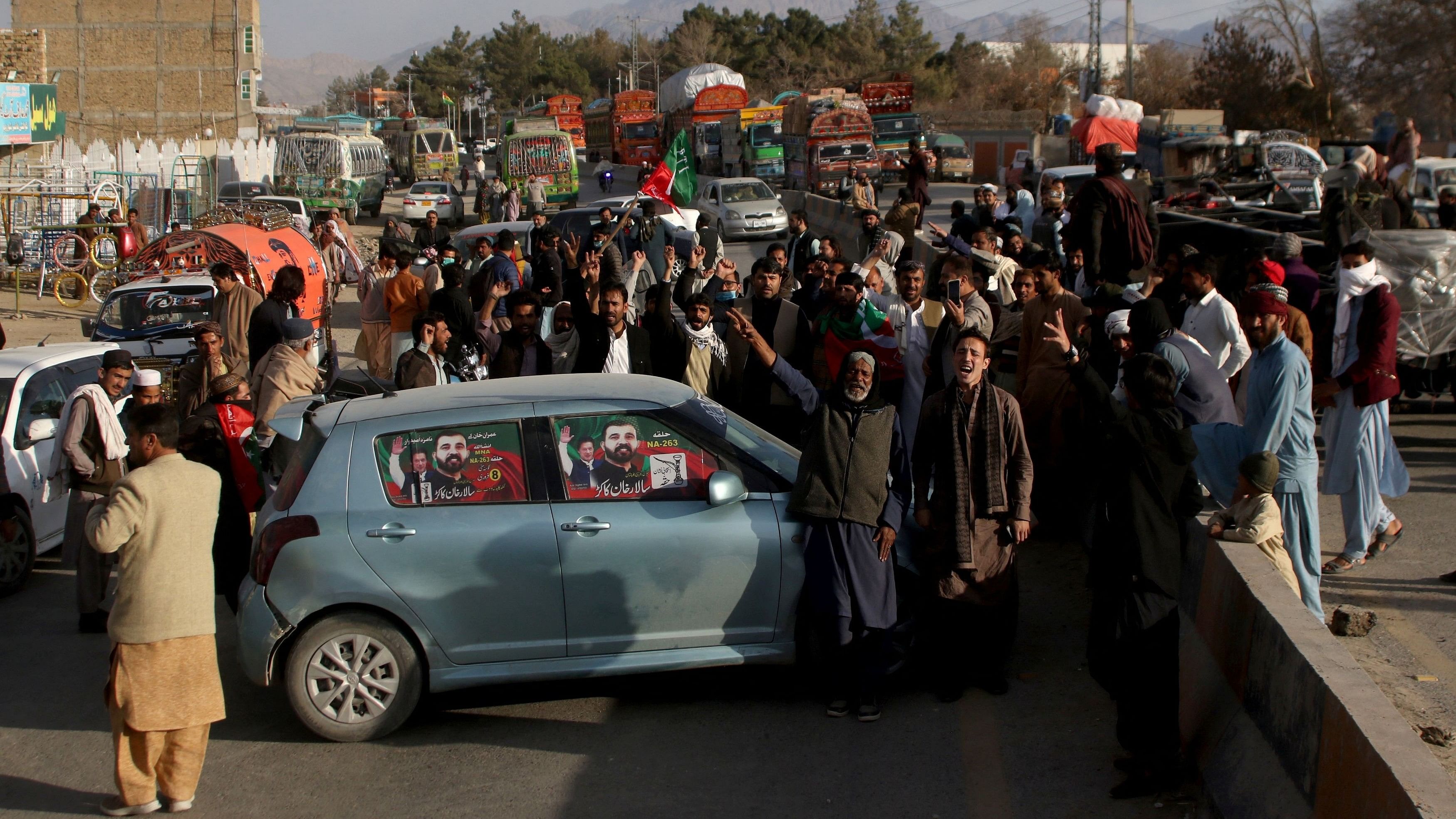
Supporters of Pakistani former Prime Minister Imran Khan's party, the Pakistan Tehreek-e-Insaf, block a road to protest against the results of the general election.
Credit: Reuters Photo
By Mihir Sharma
Its leader was clapped in jail, its ballot symbol erased, and its candidates forced to run as independents — and yet the Pakistan Tehreek-e-Insaf party of former Prime Minister Imran Khan shockingly pulled ahead of its two biggest rivals in last week’s elections. Although Pakistan’s powerful army did not conceal its desire to end Khan’s political career, many voters clearly had other ideas. In the process, they have delivered an unprecedented and shocking rebuke to the military brass who have exerted inordinate influence over the country’s fate since its birth in 1947.
In often dysfunctional Pakistan, citizens have typically seen the army as not just the only functional and trustworthy institution, but also the repository, interpreter and defender of the country’s founding values. The military has constantly meddled in democracy: Nawaz Sharif, who has been prime minister three times and still leads the party likely to head the next governing coalition, has been driven out of power by the army every single time. Usually, the population acquiesces quietly. The uniforms, they seem to think, know best.
This time feels different. For the first time in Pakistan, we have real evidence that an explicitly anti-military stance is also a winning political platform. In the past, after being forced out of power, Sharif has achieved some success by campaigning on the slogan “respect the vote.” But the turnout for Khan’s otherwise down-and-out party last week eclipsed any previous attempts by Pakistan’s civilian politicians to emerge from the army’s vast shadow.
Khan’s party remains far short of a majority. Now that the controversial process of counting the votes is finished — although legal challenges to the results will be mounted for months — PTI-affiliated independents appear to hold at least 95 out of the 265 seats in Pakistan’s National Assembly that were being contested. The two other parties that have traditionally shared power in Pakistan, Sharif’s Pakistan Muslim League–Nawaz and the Bhutto clan’s Pakistan Peoples Party, can claim 129. They just need help from one other small party to put together a winning coalition.
Khan, however, is not giving up. His voters were rewarded with a defiant victory speech after the elections, put it together using AI since he is still in jail. I have to admit that it was remarkably effective. It will be enough, surely to send his supporters out into the streets in the weeks ahead, complicating both his rivals’ plans for a stable coalition and the military’s desire to see a smooth transition of power to its current favorites.
The generals will have few precedents to guide them. Both the Bhuttos and Sharif have defied the brass in the past and rallied their supporters sufficiently to survive long spells in the political wilderness. But they were never able to transform anti-military sentiment into the kind of mobilizing tool Khan’s PTI has.
Perhaps this is because Khan has challenged the basic notion that the Pakistan army is the guardian of the state and of its founders’ vision. Khan is just egocentric enough to think that Pakistan needs no guardian but him, and no vision other than his. And he is just confident enough in his messianic role to convince other Pakistanis that he is more in tune with their aspirations than high-ranking generals are.
The power of the narrative Khan carefully built during the years before he came to power cannot be underestimated. The destiny of Pakistan is, he says, to be the perfect Islamist welfare state, modeled on the ancient Arabian town of Medina when it was ruled by the Prophet Muhammad. This was also what Pakistan’s founding generation aimed for, he says, before corrupt politicians and a predatory elite warped their vision.
Populism thrives on longing for a lost golden age and an identifiable cast of villains. Elite clans such as the Bhuttos and the Sharifs served Khan as foils for a while. Now he has added his former backers in the army to the list of wrongdoers.
In saying that it is the generals who have thwarted Pakistan’s aspirations for decades, Khan has touched — if unreflectively and cynically — upon a previously unspeakable truth. The unexpected resonance of that assertion has lifted his party above its rivals — and cast nuclear-armed Pakistan into deeply unsettling political territory.